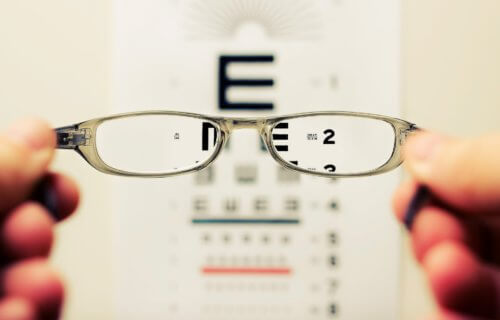NEW YORK — What would you miss looking at the most if you lost your vision? According to a survey of 2,000 Americans, respondents say they’d miss seeing their children’s milestones (26%), scenes of nature (23%), their pets (22%), and their favorite TV shows and movies (15%).
When asked which of the five senses are the most important to them, vision tops the list with 77 percent of the votes. The other senses, such as hearing (14%), touching (6%), smelling (2%), and tasting (1%), trailed extremely far behind. With that in mind, it’s no surprise that 65 percent wish they took better care of their eyes, while another 58 percent feel they take their vision for granted.
Conducted by OnePoll for NVISION, the study also found that the average person first begins to worry about their vision at 39 years-old. Although 48 percent of respondents rate their eyesight as “good,” most find it “easy” to take care of their eyes (62%), because they care about their vision (69%), go to a good eye doctor (51%), and follow a daily routine (48%).
Meanwhile, a fifth find it difficult (19%), citing challenges like gaps in insurance coverage (48%), lack of resources (39%), and no way to access a good eye doctor (38%).
Average American goes to the eye doctor every 15 months
Regardless, 45 percent believe it’s “very important” to visit the eye doctor annually, with respondents saying they’ve gone to their optometrist an average of four times in the last five years. Americans have also taken matters into their own hands with habits like eating a healthy diet (43%), wearing sunglasses (41%), getting more sleep (40%), drinking more water (40%), avoiding rubbing their eyes too much (39%), and washing their hands regularly (38%).
“Every day, I see patients with eye diseases that were either preventable or treatable if caught earlier,” says Dr. Dagny Zhu, a Harvard-trained surgeon at NVISION Eye Centers, in a statement. “Patients who eat healthy, exercise regularly, don’t smoke, and wear sunglasses can prolong the health of their eyes and delay the need for some treatments like cataract surgery. Other eye problems like glaucoma are ‘silent’ and go unnoticed until it’s too late and significant vision has been lost. That’s why it’s so important to take care of your eyes and to see the eye doctor regularly for routine checkups.”
Only 1 in 3 think too much screen time hurts their eyes
The survey also asked respondents about their opinions on several eye health statements – with 46 percent believing that staring directly at the sun is bad for your eyes, which Zhu says is the case. Many think wearing the wrong eyeglasses (39%) and staring at the TV very closely can cause damage (38%). Other statements people commonly believe are true include “reading in dim light is harmful to your eyes” (35%), “using computers frequently can damage your eyes” (35%), and “you lose your vision as you age” (34%).
Of the 72 percent of respondents who’ve never undergone LASIK surgery, 43 percent revealed they wouldn’t be afraid to do so if their eyesight began to diminish. In comparison, 35 percent expressed hesitation, fearing permanent blindness (67%), pain (53%), and a lengthy recovery process (47%).
“LASIK is one of the most studied elective procedures available today and has been shown to be safe and effective with a high level of patient satisfaction. LASIK is not painful,” adds Zhu. “There are many safety mechanisms built into the laser machine, making complications during the procedure extremely rare.”
